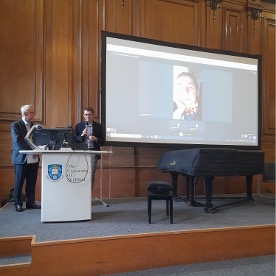International Journalism Week 2022
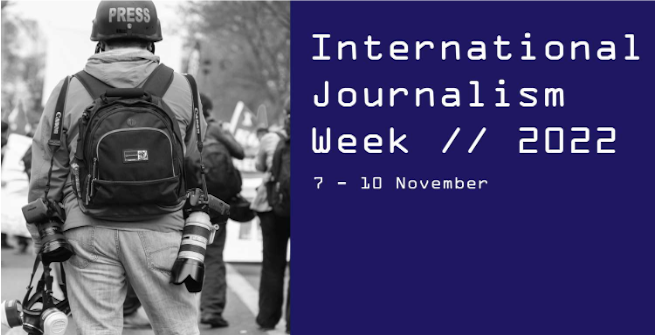
International Journalism Week 2022 took place from 7 until 10 November organised by the Department of Journalism Studies and CFOM. The theme of IJW focused on journalism in times of conflict and tension, with talks from both researchers, practitioners and campaigners.
CFOM and UNESCO Chair Professor Jackie Harrison delivered a keynote address at the start of proceedings on 7 November from 10:30-11:00. CFOM’s International Director William Horsley (image on right) also moderated the CFOM Panel on 10 November. Two panels took place focused on the theme of Reporting from Ukraine at war: Issues and perspectives.
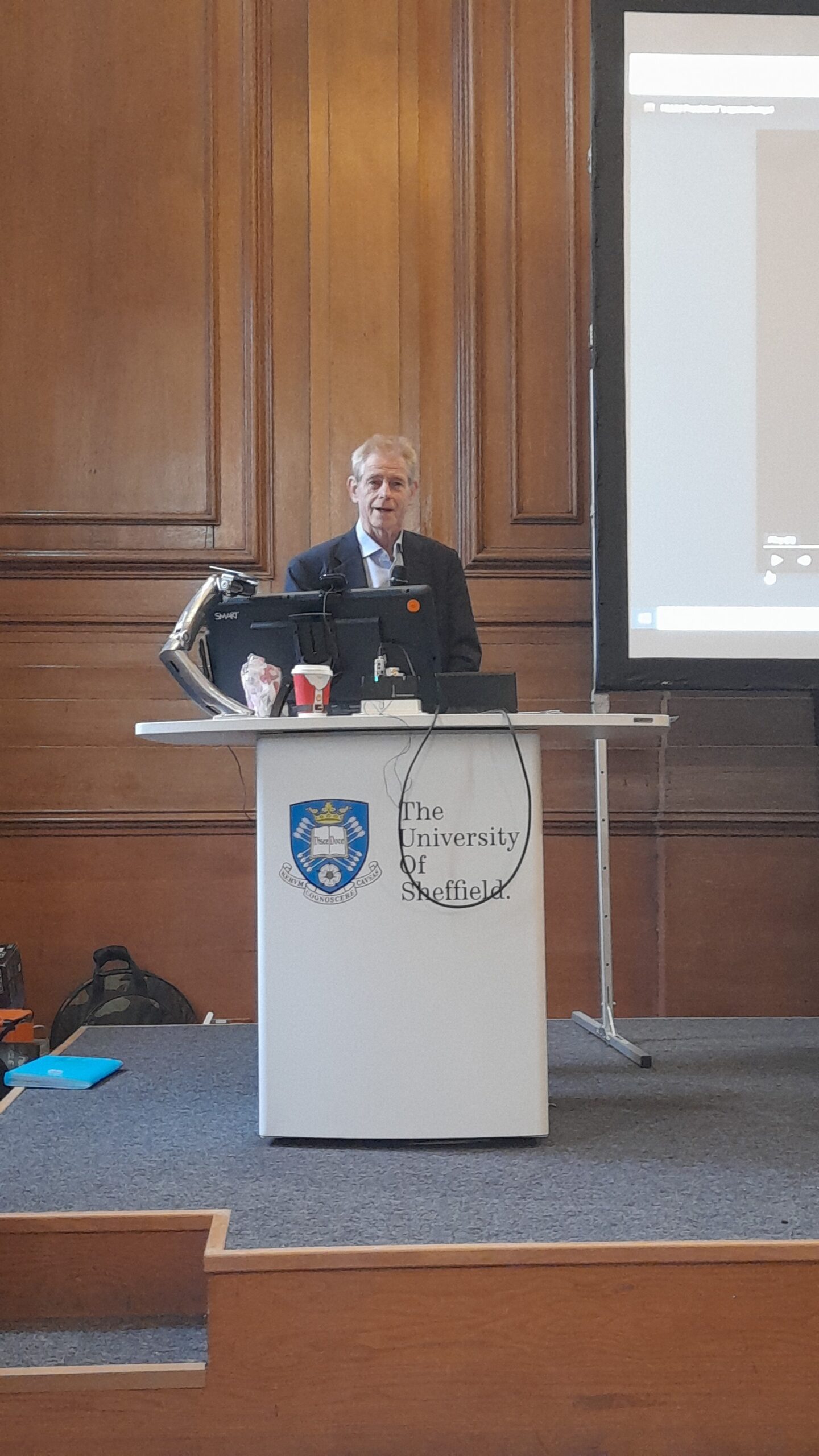
Panel One
The first panel, Reporting from the Front Line started with a recording from the President of the National Union of Journalists of Ukraine (NUJU), Sergiy Tomilenko, discussing the difficulties and challenges that journalists in Ukraine are facing as a consequence of the war, such as blackouts, needing protective equipment and also reporting restrictions. Clothilde Redfern, Director of the Rory Peck Trust, was the second speaker in the panel. Clothilde spoke about the challenges and dangers that freelance journalists face, citing legal attacks, psychological risks and digital threats as being prominent issues.
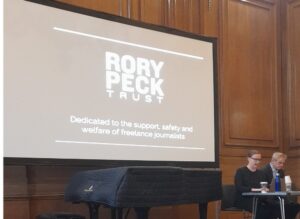
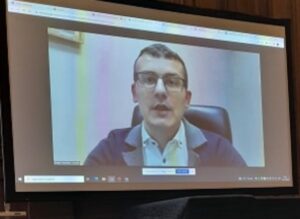
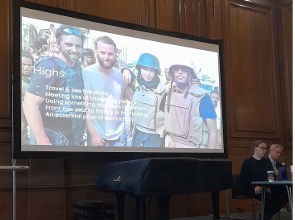
Left and Right Image: Clothilde Redfern, Director of the Rory Peck Trust and William Horsley, CFOM International Director. Middle Image: Sergiy Tomilenko, President of the National Union of Journalists of Ukraine (NUJU)
Panel Two
The second panel began with Oksana Romaniuk, Director of the Institute for Mass Information via video link from Ukraine (image on right). Oksana talked about the difficulties of reporting the war in Ukraine, noting reporting restrictions alongside discussing rhetoric that is used in the reporting. Taras Fedirko, a British Academy Research Fellow at the University of St Andrews (image on right), also spoke about the changing face of Ukraine’s media and society at war, noting that war has undermined media revenues and made reporting on the ground more expensive because of logistics costs, such as fuel. In turn, this has an impact on critical news reporting. Taras also discussed the complexity of reporting the war and the role of propaganda.
You can watch the full panel discussion here.
